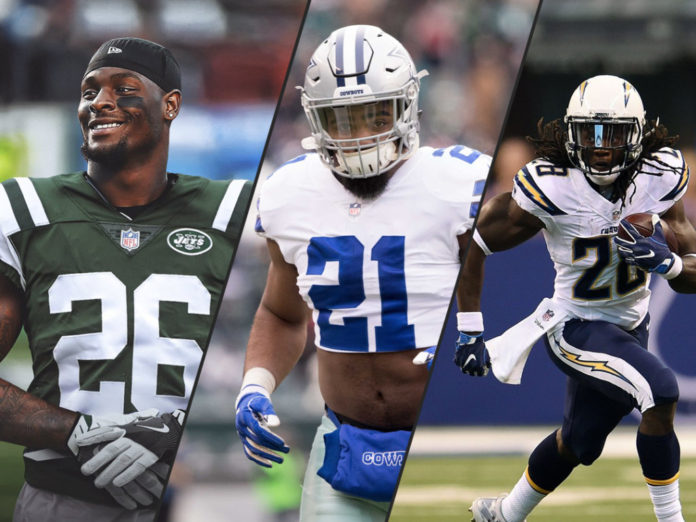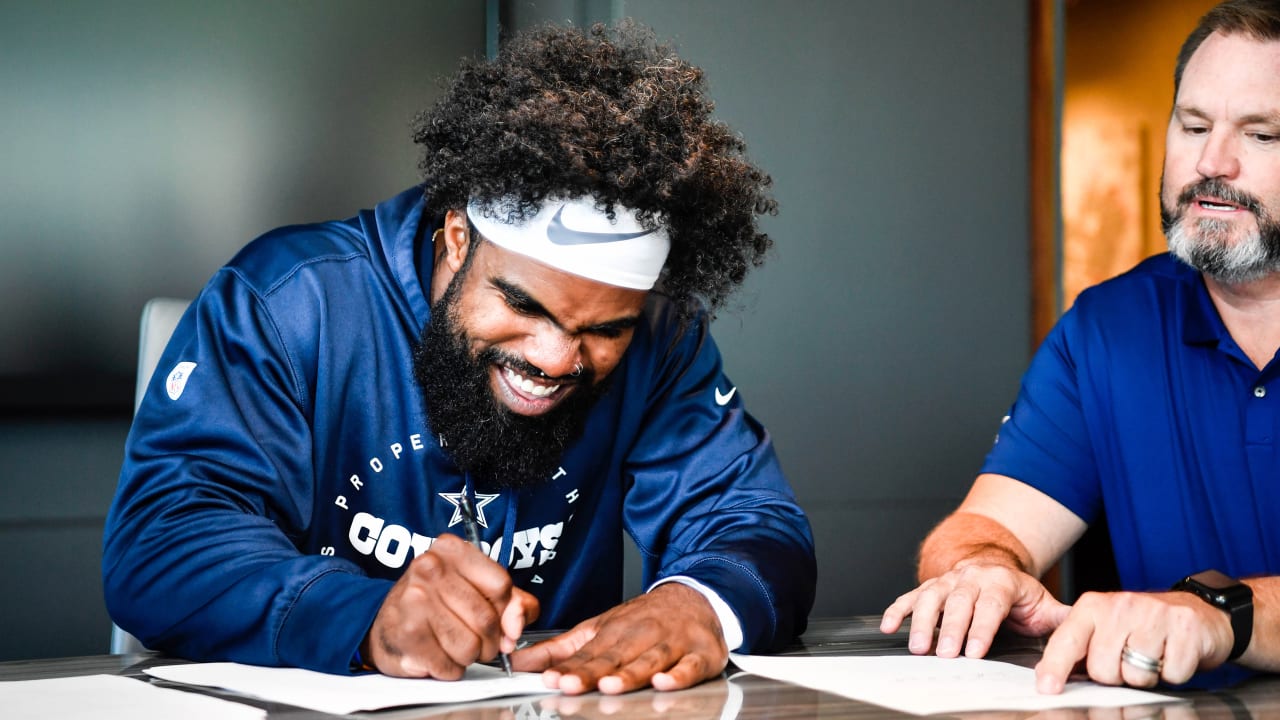Zeke, Bell, Gordon: Three of the NFL’s best backs that for now are recognized more for the holdout they committed to rather than their on the field skills. Holding out in sports is a relatively new strategy, albeit a few exceptions, but for players looking for a new contract and encountering resistance from their organization’s front office, this strategy is one of the best. As players keep experiencing success with it, like Zeke did with his $90 million contract that he signed on September 4th, this strategy is sure to become more and more common. With players holding out with one or two years left on their contract, it raises the question: Does a player ever have to stop holding out?
Repeating Holdouts
Generally what happens after a player successfully holds out is that the player and the organization try to put the contract dispute behind them and move forward into their season, at least in the public eye. But what if a player decides, two or three years later, that they want an even better contract, and decide to hold out again? To give an example, imagine if Zeke decides to hold out in three years, in 2022, after he’s about halfway through his contract in order to get more money. There’s currently nothing in place to stop a player from doing this, save public opinion and fines, but as holdouts and progressive thoughts on players’ salaries continue to develop, this is something that could become commonplace.
In general, when a player holds out, public opinion tends to side with the player due to the fact that he puts his body at risk every play and deserves to be paid accordingly. However, if a player were to hold out for a second time, would the public hold the same sentiment? In theory, the same logic justifying the first holdout would apply to the second as well. This might be seen as greedy, but if the justification holds true, then when should a player ever stop holding out?
When Does a Holdout End And a New One Begin?
As of right now, NFL players don’t consider holding out once their terms are met, but as the years pass, the answer to the question above could potentially change. Players might start to hold out with three or even four years left on their contract.
With this new holdout strategy increasing in popularity among players, it points to the devaluation of contracts; instead of a contract being honored in its entirety, they’re now consistently being cut short. The players have the leverage to make organizations either comply with their financial demands or sacrifice the use of their game-changing ability. Consequently, contracts will slowly become worth less and less as players become increasingly noncommittal.
Something to Think About
While a second holdout hasn’t been done by a high profile NFL player, it’s something that’s bound to happen in the future. As players and their agents progress to try and squeeze out every single rightful penny they’re owed, holdouts will become more commonplace among the whole league. This will be a league altering trend that will emphasize once and for all that the league is a business, and that players are going to fight for their deserved piece of the pie.
Check back to The Roundup for more sports opinions and other news!







